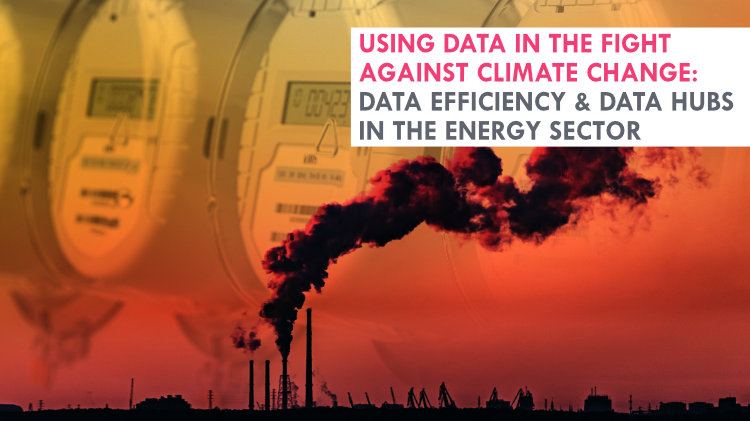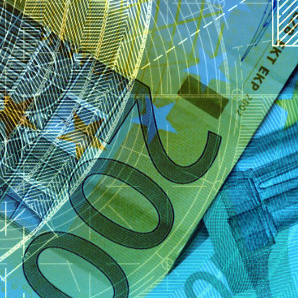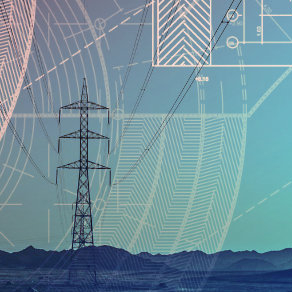
The world is facing a serious climate crisis, which demands action from all of us. There are many things we can do to be part of the solution: transform our transportation, switch to zero-carbon energy providers, eat plant-based meals, buy local and seasonal foods… What doesn’t get enough emphasis, however, is how data can help tackle climate change.
“We know that data is essential in finding the clever solutions that are going to accelerate the green transition,” Martin Lervad Lundø, CEO of Denmark’s Energinet DataHub, has said and it’s hard to argue with him. If we are to use energy properly, data is key. It is the basis for new services, products and business models. Whether it is green electricity subscriptions or charging electric cars for grid flexibility or maybe a completely new invention - all of that is made possible through data.
Data in energy
Most of the energy we need for our daily existence is still provided through networks designed in the middle of the last century that rely heavily on carbon-based resources. If we are going to ward off the challenges of climate change, we must not only switch to renewable energy, but also redesign our existing energy systems and adopt a data-driven approach that is based on the concept of energy connectivity, which enables participants to play an active role in facilitating the energy transition. Customers need incentives to take energy efficiency measures and manage their energy consumption smartly and effectively.
The Nordic countries as well as Estonia have been pioneers in the data-driven transformation of their energy markets. Why? Because they have realized that, to quote the Danish transmission system operator Energinet, “data is the foundation for innovation.” But how is energy data collected?
Data origins
In the past, consumers used to read their meter or have someone from their supplier come and read it for them, typically once a month. It was a manual process, or rather, is a manual process since it is still common practice to this day. Now, however, we also have so-called smart meters that can collect meter data automatically and at a much higher level of granularity than analog meters. Does smart collection of data make the data itself smart, though? Not really.
In order to create added value from the collected data, we must have uniform communication methods and standardized processes in place. That way, thanks to the simplification and automation of data exchange among market actors, professional participants can use the data to optimize their market offerings, which can eventually lead to more competition. Rich datasets also provide the fundamentals necessary for various business cases such as real-time guarantees of origin and other innovative carbon offset services. This is where data hubs play a crucial role.
Data hubs
Any energy market has millions of metering points that collect data in ever smaller granularity. Indeed, data collection is moving from hourly to quarter-hourly basis and it will soon take place on a five-minute basis. Hundreds of millions of messages are exchanged between companies each year. It’s data hubs that enable us to manage such large volumes, reduce the number of errors in market processes and make it easier to combine multiple accounting points in the same sales agreement.
Data hubs speed up information exchange between parties in energy markets and ensure that up-to-date data is available to everyone who is authorized to access it - at the same time and under the same conditions. Centralizing data from operator-specific systems into a single location improves the customer service that energy companies provide. Supplier switching, for instance, can happen faster and more smoothly.
The full utilization of smart grids and meters is also supported by data hubs, and by lowering barriers, they enable the development of new and innovative applications that help electricity consumers save electricity or monitor their consumption. For example, end customers can purchase EV chargers that promise savings of 20% or heat pumps for home heating that can adjust electricity consumption during peak hours when the market price of electricity is high. With the help of price signals, weather forecasts, and temperature sensors, algorithms can optimize heating and cooling. Customers can save money on their electricity, but in the near future, data hubs will help them save on grid tariffs, too.
For the energy system, data hubs can guarantee increased power grid capacity and better utilization of renewable production resources. Future mid- and low-voltage flexibility market platforms will also benefit from the data exchange standardization that data hubs can ensure.
There is no doubt that the green transition and the future of energy are digital. Let us show you how we can help you get ready for both.
Learn more about European data hubs below:
Belgium - Atrias
Denmark - Energinet DataHub
Estonia - Estfeed
Finland - Fingrid DataHub
Italy - Acquirente Unico
Norway - Elhub
Sweden - Svenska Kraftnät Elmarknadshubb (on hold)
UK - ElectraLink
Sweden - Svenska Kraftnät Elmarknadshubb (on hold)




